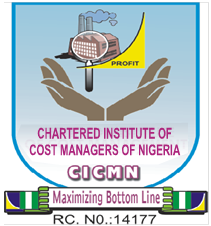Corruption remains a significant challenge in Nigeria, affecting the efficiency and trust in both the public and private sectors. However, effective cost management practices can play a pivotal role in curbing corruption, especially in government projects and corporate initiatives.
Transparency in Budgeting and Spending
One of the key ways cost management can reduce corruption is by ensuring transparency in budgeting and spending. Clear, detailed budgets that are rigorously monitored make it difficult for individuals to siphon off funds or inflate project costs. By establishing strict protocols for every stage of financial planning—from initial estimates to final audits—organizations can minimize opportunities for fraudulent activities. The Chartered Institute of Cost Managers of Nigeria (CICMN) emphasizes these practices by promoting standardized cost management frameworks that require accountability and traceability of funds.
Accountability through Regular Audits
Regular audits are an essential aspect of cost management that can expose discrepancies or irregularities in financial transactions. By instituting periodic, unbiased reviews of accounts, organizations can identify and address any suspicious activity before it escalates. CICMN advocates for routine audits as a deterrent to corruption, encouraging organizations to adopt practices that leave no room for financial misconduct.
Encouraging Ethical Practices and Professionalism
Cost management practices also encourage a culture of ethical behavior and professionalism. When professionals adhere to well-defined cost management standards, there is a reduced likelihood of unethical practices such as bribery, kickbacks, or favoritism. CICMN supports the training and development of professionals who are committed to integrity and the responsible management of resources, ensuring that cost management becomes a tool for promoting ethical business conduct.
Reducing Red Tape and Bureaucratic Inefficiency
Corruption often thrives in environments where bureaucratic inefficiency and red tape are prevalent. Cost management practices streamline processes, reduce unnecessary delays, and cut down on waste, making it harder for corrupt practices to go unnoticed. By implementing efficient procedures that are closely monitored and controlled, CICMN helps organizations and government bodies to operate more effectively, thereby reducing opportunities for corrupt activities.
Conclusion
Cost management is more than just a tool for budgeting and controlling expenses; it is a critical strategy for promoting transparency, accountability, and ethical practices. As Nigeria continues to battle corruption, adopting robust cost management practices, as advocated by CICMN, can help create a more transparent and accountable system, ultimately leading to a significant reduction in corrupt activities.

